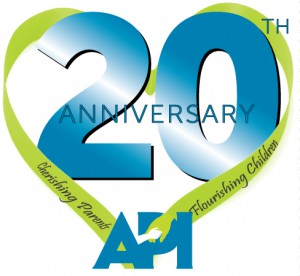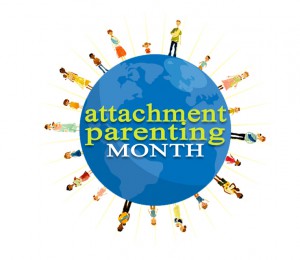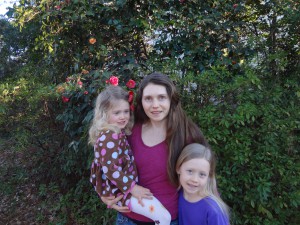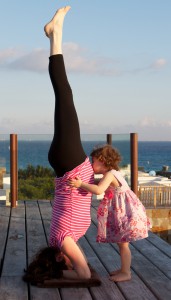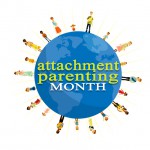 As an Attachment Parenting parent, I’ve always listened to my children. I always will. I treat them with respect, and I truly care what they have to say. I do my best and hope they always know that someone hears them. I don’t want them to go through their lives wondering and feeling like they are alone, as so many of us do.
As an Attachment Parenting parent, I’ve always listened to my children. I always will. I treat them with respect, and I truly care what they have to say. I do my best and hope they always know that someone hears them. I don’t want them to go through their lives wondering and feeling like they are alone, as so many of us do.
I’m not a movie critic, although sometimes, when I’m deeply moved by a film, I wish I was. My husband and I took our boys the other day to see the delightful “Hector and the Search for Happiness.”
The sweet woman giving us our tickets was a bit taken back when she saw how young our boys were and wondered why they were about to see this film and not a kid’s movie. She kindly and gently said, “They may not get the subtleties.”
She obviously doesn’t know our boys.
I must say how proud I am to witness their attentiveness, comprehension and interest in such mature, thought-provoking and enlightening films. When they saw the preview of a man traveling around the globe in search of happiness, they both exclaimed their desire to see it.
You wouldn’t believe the questions they asked during and after. They are such curious individuals and so in touch with themselves and this wonderful gift of being.
We enjoyed the film very much, and I’m always affected by any verbal, written or otherwise expressed work of inspiration and insight into one’s journey through this life.
I don’t usually read or care for reviews, because like anything, I believe we need to experience things for ourselves and form our own opinions. Someone’s opinion regarding this film, however, did capture my attention and inspired me to share on this subject.
To briefly sum up his thoughts, he described this film as a depiction of a middle-aged man who prefers to live in fantasy and who chases an unattainable ideal across the globe, only to realize this figment of happiness is a creation of his own feelings of cowardice and insecurity.
The critic also went on about ego and narcissism, and why would anyone be interested in a man, with means, who traveled to other continents in search of happiness?
He wasn’t only searching for his happiness. He wanted to figure out how to make others happy as well.
This, along with one of the featured messages in the movie, got me thinking about the quote, which is so simple, yet so important…
“Listening is loving.”
I really sat with that thought all day, along with this critic’s interpretation of ego as it pertains to expressing interest or a need to search deeper and why that makes someone vainglorious and self-important.
I couldn’t disagree more.
In fact, it’s this very opinion of what makes something self-important that sometimes holds me back from expressing myself. I sometimes wonder if and why anyone would care what I have to say. I wonder why my opinion matters.
I believe we all have something to say and we all want someone to hear us. Using our voice and expressing what we are searching for, what we stand for or otherwise, does not make us narcissistic.
From birth, perhaps before, I believe the first thing we all wished for was to be heard.
When we cried as babies, we weren’t crying to manipulate; we were crying because we needed something. When those cries and calls for attention went unnoticed and unanswered, we possibly retreated and found the answers within ourselves and have spent our lives wondering if anyone ever truly listens or hears us.
Listening is loving. When I want or need to speak, sometimes I don’t need a solution, I don’t need you to judge and I don’t need an answer.
If you can listen and just hear what I am saying, you may help me find the answer within myself. You may discover something about yourself within my truth.
We are all searching for something. If we aren’t searching, we aren’t growing. We will never know everything about ourselves or this life. We will never have all the answers.
The preview of this film inspired me from the moment actor Christopher Plummer narrated these words:
“How many of us can recall that childhood moment when we experienced happiness as a state of being when everything in our world was all right?”
Happiness.
As a state of being.
Not just something to present to the world via social media so it appears that you are happy. I’m speaking of true happiness. Where capturing the moment didn’t matter because that feeling was so pure and that moment was ours. No one needed to understand it, and no one needed to witness it.
I could go on and on about the ways in which I’m inspired by people in real life, books and films. The people who go far beyond what is comfortable. The people who bravely walk through fear, even though they have rational and irrational reasons to be afraid. People who choose their own paths and don’t follow the masses. People who jump. People who truly love. People who unselfishly and unconditionally help others. People who truly live.
Lastly, at the end of this film, Christopher Plummer was experimenting with a brain-scanning technology on two subjects and placed them in a room with a wired device on their heads.
Before they walked in, he told them to go to the places where they recalled feeling happy, sad and scared — in any order.
I won’t reveal too much about the film, but I will tell you this: We experience all of these emotions, simultaneously. It is the complex, yet beautiful, combination of these feelings that pushes us beyond our limitations.
As I get older, I embrace my happiness, my sadness and my fear. I let them guide me to places I never thought possible. I let them sit within and circulate around as I evolve a little more in each moment.
I am in search of happiness and peace also. For my children. For my Family. For you. For humankind.
As Hector was about to depart on his soul-searching expedition, his girlfriend wholeheartedly proclaimed, “If you’re going to do this, do it totally.”
Yes, this is how I believe we should do everything. Totally. This is how we will continue to feel alive, despite the forces constantly telling us we’re dying.
The author, Mark Twain, once said something that I’ve always appreciated:
“The two most important days in your life are the day you are born and the day you find out why.”
You have already been born, so if you haven’t figured out why yet, this will be my wish for you.
Thank you for listening. I feel loved and heard when you do,


